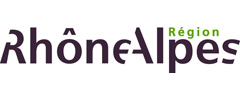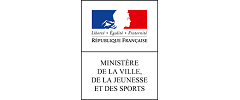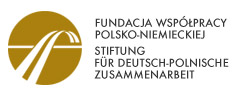Gender and Climate Change: an Introduction
Textbook edited by Irene Dankelman, former chair WECF's International Advisory Board, with contributions from WECF
30.11.2010

Paperback October 2010 • 240 pages • 234 x 156mm • ISBN 9781844078653
Other Editions ISBN Price
Hardback 9781844078646 £75.00
Although climate change affects everybody it is not gender neutral. It has significant social impacts and magnifies existing inequalities such as the disparity between women and men in their vulnerability and ability to cope with this global phenomenon.
This new textbook, edited by one of the authors of the seminal Women and the Environment in the Third World: Alliance for the Future (1988) which first exposed the links between environmental degradation and unequal impacts on women, provides a comprehensive introduction to gender aspects of climate change. Over 35 authors have contributed to the book.
It starts with a short history of the thinking and practice around gender and sustainable development over the past decades. Next it provides a theoretical framework for analyzing climate change manifestations and policies from the perspective of gender and human security. Drawing on new research, the actual and potential effects of climate change on gender equality and women's vulnerabilities are examined, both in rural and urban contexts. This is illustrated with a rich range of case studies from all over the world and valuable lessons are drawn from these real experiences. Too often women are primarily seen as victims of climate change, and their positive roles as agents of change and contributors to livelihood strategies are neglected. The book disputes this characterization and provides many examples of how women around the world organize and build resilience and adapt to climate change and the role they are playing in climate change mitigation. The final section looks at how far gender mainstreaming in climate mitigation and adaptation has advanced, the policy frameworks in place and how we can move from policy to effective action.
Accompanied by a wide range of references and key resources, this book provides students and professionals with an essential, comprehensive introduction to the gender aspects of climate change.
Contents
Foreword
Testimony
1. Introduction: Exploring Gender, Environment and Climate Change
Part I THE ANALYSIS
2. Gender, Environment and Climate Change: understanding the linkages
3. Climate Change, Human Security and Gender
Case 3.1 Climate Change and Women's Voices from India
4. Cities, Climate Change and Gender: A Brief Overview
Case 4.1 Mitigation of Greenhouse Gases by Informal Waste Recyclers in Delhi, India
Case 4.2 Gender Mainstreaming in the Climate Change Response of Sorsogon City,
the Philippines
Part II REALITIES ON THE GROUND
5.2 Gender Dimensions, Climate Change and Food Security of Farmers in Andhra Pradesh, India
5.3 The Gender Impact of Climate Change in Nigeria
5.4 Gendered Vulnerability to Climate Change in Limpopo Province, South Africa
5.5 Gender Perspectives in Adaptation Strategies: the Case of Pintadas Solar in the Semi-Arid Region of Brazil
5.6 Climate Change and Indigenous Women in Colombia
5.7 Gender Aspects of Climate Change in the U.S. Gulf Coast Region
5.8 Women at Work: Mitigation Opportunities at the Intersection of Reproductive Justice and Climate Justice
Part III STRATEGIES AND ACTION
6. Establishing the Linkages between Gender and Climate Change Adaptation and Mitigation
Lorena Aguilar, International Union for Conservation of Nature, Costa Rica
7. Climate Change and Gender: Policies in Place
8. Why More Attention to Gender and Class Can Help Combat Climate Change and Poverty
9. Women Organizing for a Healthy Climate
9.1 Climate Justice through Energy and Gender Justice: Strengthening Gender Equality in Accessing Sustainable Energy in the EECCA region
9.2 National Federation of Women's Institutes: Women Organizing for a Healthy Climate
9.3 Women and the Environmental justice Movement in the Niger Delta Region of Nigeria
10. Epilogue: From Divergence towards Convergence
10.1 Gender-disaggregated Data for Assessing the Impact of Climate Change
10.2 Gender and Climate Information: A Case Study from Limpopo Province, South Africa


































